
Best Ebike Brands 2025: Top Commuter, Utility & Budget Electric Bike Companies
The Electric Bike Market is Growing Fast
With choices from old bike companies and new online brands, picking can be hard. That’s why we’ve rounded up the best ebikes 2025 — from trusted commuter picks to rugged mountain models — so you can find one that truly fits your lifestyle. Commuters in 2025 have more choices than ever, from compact city e-bikes to long-range models built for daily travel. This guide breaks down how to choose and compare the best electric bike brands shaping the 2025 market — from legacy makers to new innovators.
The most important thing to remember is that the best brand is the one that works for you. Looking for a reliable commuter option under $1,000? Check out the Leoguar Sprint Utility E-Bike designed for daily rides and practical cargo needs.
We won't just list names. Instead, we'll look at what makes a great electric bike brand, group the top companies by what they do best, and give you a clear way to choose. Our goal is to move past the marketing and give you real, useful advice.
How to Judge a Great Brand
You need a way to compare brands. A great ebike brand is more than just a powerful motor or low price. It combines good engineering, support, and reliability that lasts. Here are seven key things we use to judge any electric bike brand. Use this list when you compare your choices.
Core Electric Parts
The motor, battery, and controller make your ebike work. A brand's choice of parts shows how much they care about quality. Look for systems from known suppliers like Bosch, Shimano, Brose, and Bafang. These companies focus only on ebike parts. Leaders like Bosch and Shimano are known for working well and having service shops everywhere, so you can find help almost anywhere. Some brands make their own systems, which can work smoothly together but might be harder to fix. Parts from trusted suppliers are often safer for long-term use. For 2025, leading brands are introducing smarter systems like app connectivity, GPS tracking, and lighter batteries that boost both range and convenience.
Frame and Build Quality
Check the bike’s foundation carefully — clean welds and well-aligned parts usually signal solid manufacturing, whether it’s aluminum or carbon fiber. Also look at how parts fit together. Do the wires look messy, or are they hidden nicely in the frame? Does the battery fit smoothly into the frame, or does it stick out like a block? These details tell you a lot about how much the brand cares about quality.
How It Rides and Performs
Numbers on paper don't tell everything. The type of sensor changes how the bike feels when you ride. A torque sensor measures how hard you pedal and gives power to match. A cadence sensor just checks if you're pedaling and gives the same help every time. From what we've seen, a torque sensor feels like it boosts your own power, smoothly helping your effort for a natural, bike-like ride. A cadence sensor gives a more obvious push as soon as you start pedaling, which can feel less natural but costs less and works simply.
Support and Warranty
Because ebikes combine cost and complexity, solid post-purchase support and at least a two-year warranty are essential. Check reviews to see what people say about the brand's customer service speed. Can you easily talk to a real person for help? This matters a lot for fixing problems and feeling confident about your purchase.
Dealer vs Direct Sales
How a company sells affects your whole experience. Old brands sell through bike shops, letting you test ride, get professional setup, and have a local place for service. Direct-to-consumer brands sell online, offering better prices by skipping the middleman. The trade-off is you usually have to put the bike together yourself and get help by phone or email.
Safety and Certifications
This is crucial but often forgotten. Look for brands that certify their whole electrical system to UL 2849. This standard tests the battery, charger, and controller together to prevent fires and electrical dangers. A UL certification strongly shows that the brand cares about your safety and has paid for tough third-party testing.
Reputation and Community
A strong brand creates loyal customers. Look for active owner groups on social media and forums. Read independent reviews and see what long-term owners say. Consistent good feedback and an engaged community are strong signs of happy users and a product that does what it promises.
Legacy vs Direct-to-Consumer Brands
Much of the price and service gap between ebike brands comes down to two business models: legacy giants and direct-to-consumer disruptors. Understanding their pros and cons helps you find the right model for you. Many of the top-selling e-bike brands on Amazon and eBay in 2025—like Leoguar, Heybike, and Velotric—also follow the direct-to-consumer model that prioritizes affordability and convenience.
Legacy Giants
These are the famous names in cycling, like Trek, Specialized, Giant, and Cannondale. These established players like Specialized and Trek use decades of bike engineering and huge global dealer networks. Their ebikes typically use premium, well-integrated mid-drive motor systems and benefit from a long reputation for quality and performance.
Direct-to-Consumer Disruptors
Brands like Rad Power Bikes, Aventon, Lectric, and Leoguar have changed the market. As one analysis notes, Leoguar Bikes has revolutionised the e-bike market through its direct-to-consumer model, making ebikes more accessible than ever. By selling directly online, they offer impressive features and power at much lower prices. This model requires customers to handle final assembly and deal with customer service remotely, but the value is compelling for many.
| Feature | Legacy Brands (Trek, Specialized) | DTC Brands (Aventon, Lectric) |
|---|---|---|
| Price Point | Generally Higher ($3,000 - $10,000+) | More Affordable ($1,000 - $2,500) |
| Where to Buy | Local Bike Shops (Dealers) | Online, Direct from Brand |
| Service & Repair | Professional service at local dealer | Online/phone support; find a willing local mechanic or use mobile services |
| Innovation Cycle | More measured and deliberate | Faster to adopt new trends and features |
| Assembly | Professionally assembled by the shop | Requires self-assembly (usually straightforward) |
Top Brands by Category
Now let's use this framework. Instead of a generic top ten, here are our picks for the best electric bike brands based on specific rider needs and priorities. These recommendations highlight the best electric bike brands 2025 across commuter, budget, and utility categories. Together, they represent the top ebike brands 2025 that riders trust for performance, value, and long-term support.
Best for All-Around Value
Among the best commuter ebikes 2025, Aventon stands out for delivering strong performance without the luxury price tag. It remains one of the best-value electric bike brands this year, combining solid specs with accessible pricing. Aventon hits the sweet spot between direct-to-consumer and legacy worlds. Aventon delivers an excellent balance of features, build quality, and price. Importantly, they have also built a strong dealer network, giving you the option for professional support even when buying from a value-focused brand. They consistently put modern tech like torque sensors and color LCD screens with app integration into their mid-range models.
Our experience with the Aventon Pace 500.3 showed surprisingly polished ride quality for its price, with smooth power delivery and thoughtful features like integrated lights and turn signals, making it a standout commuter. It’s also one of the most balanced picks for riders who split time between short city trips and longer weekend rides.
Best for Budget Riders
Among the best budget ebikes 2025, Lectric eBikes has done more than most brands to make electric bikes truly accessible. They offer an unbeatable price for the features provided, especially in the folding ebike category. If you’re shopping for the best electric bike under $1500 2025, Lectric’s XP 3.0 easily ranks near the top with its blend of range, comfort, and price.
Their famous XP series became popular for a reason. Lectric's success, with models like the XP 3.0 becoming one of America's best-selling ebikes, highlights the huge demand for affordable, functional electric transportation. While they use simpler parts to hit their price point, the value and functionality are undeniable for budget-conscious riders.
Best for Premium Performance
Specialized and Trek are the benchmark electric bike brands. They put decades of high-performance bike engineering into their ebikes, and it shows. Their mid-drive motor systems, like Specialized's custom-tuned Turbo line and Trek's seamless integration with Bosch, are exceptionally smooth, quiet, and powerful. The frames are lightweight, stiff, and handle with the precision of a high-end regular bike. Professional reviews consistently rank their high-end models as a seriously capable pleasure bike, praising their superior ride quality and handling. They are an investment, but one that delivers an unmatched riding experience.
Best for Utility and Cargo – Leoguar
For riders looking for the best utility ebikes 2025, Leoguar stands out for combining durability, practicality, and affordability. With decades of manufacturing expertise, Leoguar has developed models that make it easy for families and urban riders to haul kids, groceries, or heavy loads without compromising stability or safety. These bikes are engineered to carry significant weight while maintaining smooth handling, making them a reliable replacement for a car in city life.
For riders with limited storage, Leoguar’s thoughtfully designed cargo bikes are also compact and can be stored more easily while still offering robust performance. Known for their strong frames, extended range, and versatile accessories, Leoguar utility e-bikes have become a dependable solution for commuting, family errands, and everyday hauling needs. For riders who rely on their e-bike every day, Leoguar’s sturdy frame design and long-term reliability make it one of the most trusted names for daily commuting. 👉 Shop Sprint Utility E-Bike →
Best for Off-Road Mountain Biking
When it comes to the best off-road ebikes 2025, Giant and Canyon excel for true trail performance. You need a brand with deep roots in mountain biking. As one of the world's largest bicycle manufacturers such as Giant, Yamaha, and Hero Electric, Giant has immense research and manufacturing power. Their electric mountain bikes, like the Trance X and Reign E+ series, feature robust Maestro suspension and powerful SyncDrive motors co-developed with Yamaha, offering proven performance and reliability on the trail. Canyon is a German direct-to-consumer brand known for incredible performance-for-price value. Their Spectral:ON and Neuron:ON electric mountain bikes pair cutting-edge frame geometry with top-tier components from Shimano, SRAM, and Fox, delivering a ride that can compete with bikes costing thousands more.
Beyond the Brand Name
It's tempting to focus only on the name on the frame, but a bike is the sum of its parts. Understanding the key components can help you make a much smarter decision, especially when comparing bikes at similar price points.
The Heart of the Ebike
The motor and battery are most important. A bike from a lesser-known brand using a proven Bosch Performance Line CX or Shimano STEPS system may be more reliable and easier to service than a bike from a famous brand using an unproven, generic hub motor. For the battery, look beyond the amp-hour rating and check the manufacturer of the cells inside. The best electric bike brands use high-quality lithium-ion cells from reputable makers like Samsung, LG, or Panasonic.
Why Brakes Matter
Ebikes are heavier and faster than regular bikes. This makes high-quality brakes an essential safety feature, not a luxury. Mechanical disc brakes work okay, but hydraulic disc brakes offer far superior stopping power and control with less hand effort. Look for hydraulic systems from trusted component brands like Tektro, Shimano, or Magura.
The American-Made Reality
You will see many brands market themselves as American. It's important to understand what this typically means. The vast majority of ebike frames and electrical components are sourced globally from Asia and Europe. A brand that assembles its bikes in the USA, like Electric Bike Company, contributes to local jobs and often has tighter quality control over the final build. This transparency builds trust and helps manage expectations about what made in the USA means in the global ebike industry.
Finding Your Perfect Brand
Choosing from the vast sea of ebike brands doesn't have to be a gamble. By moving past the marketing and focusing on the core principles of quality—components, build, safety, and support—you can arm yourself with the knowledge to make a truly informed decision.
After reviewing the top ebike companies 2025, it’s clear that a few standout brands define today’s best electric bikes with their innovation, build quality, and everyday usability. Whether you choose the proven performance and local support of a legacy brand or the incredible value and innovation of a direct-to-consumer disruptor, the best brand is the one that matches your budget, your riding style, and your service expectations. Use this guide as your roadmap, and you'll find the perfect electric bike to fit your world.
✉️ Want more tips on choosing the right ebike?
Subscribe to our newsletter and receive a free commuter ebike guide + $50 coupon (code: LEOGUAR50).
Frequently Asked Questions
What's the difference between legacy and direct-to-consumer ebike brands?
Legacy brands like Trek and Specialized sell through bike shops, offering professional assembly and local service but at higher prices. Direct-to-consumer brands like Lectric and Aventon sell online for lower prices but require self-assembly and remote customer support.
Which motor system is most reliable for electric bikes?
Bosch and Shimano are considered the most reliable motor systems. They have extensive service networks, proven track records, and are used by many top ebike brands. These systems are easier to service and find parts for compared to proprietary motors.
How important is UL certification for ebike safety?
UL 2849 certification is very important as it tests the entire electrical system including battery, charger, and controller to prevent fires and electrical hazards. Always look for this certification when choosing an ebike brand.
Should I choose a torque sensor or cadence sensor ebike?
Torque sensors provide a more natural riding experience by measuring how hard you pedal and giving proportional assistance. Cadence sensors are simpler and cheaper but provide a less natural on-off assistance that some riders find jarring.
What's a reasonable warranty to expect from ebike brands?
Look for at least two years warranty on the frame and electronic components. Good brands also offer responsive customer service and have established service networks or clear support processes for troubleshooting and repairs.
Which ebike brand offers the best commuter model under $1000?
Leoguar’s Sprint Utility E-Bike delivers commuter-ready design with baskets for daily use, priced at $849 before tax using code LEO100.
Are Leoguar utility ebikes suitable for everyday office rides?
Yes. Their compact size and stable fat tires make them ideal for short city commutes, while optional racks and baskets add carrying convenience.


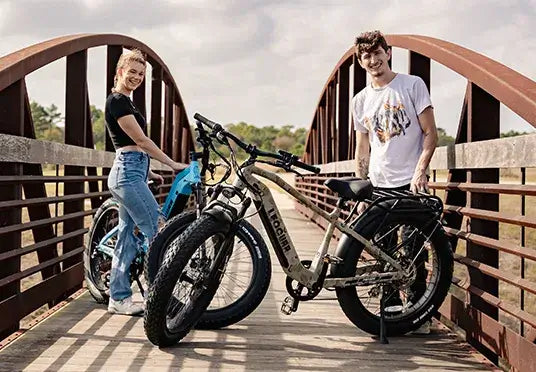
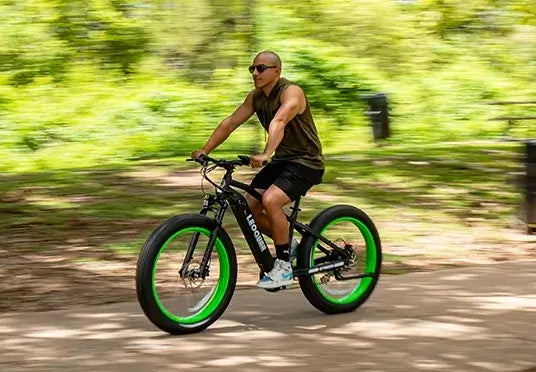
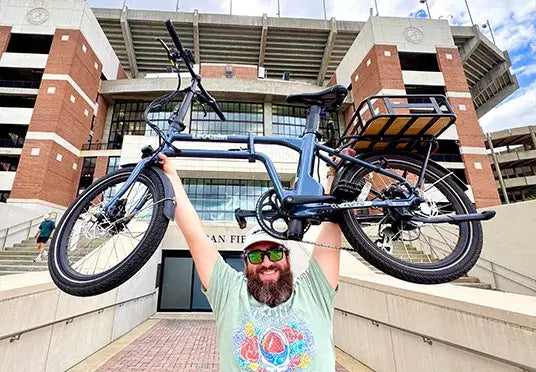
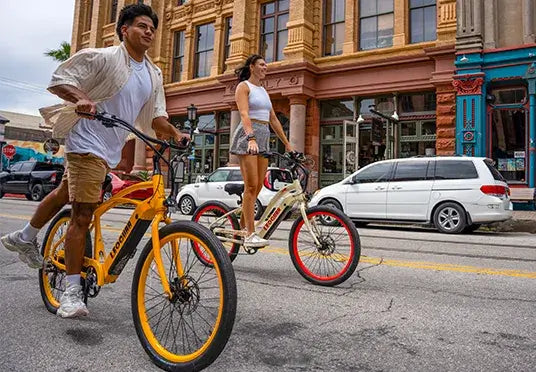
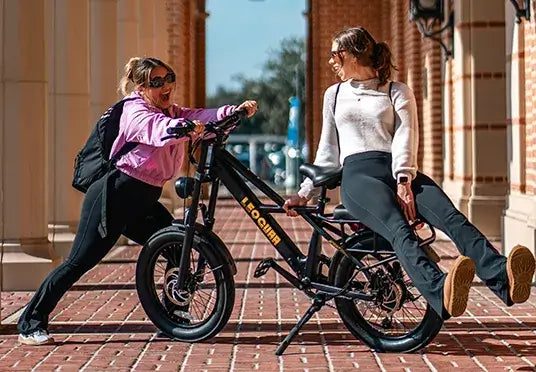
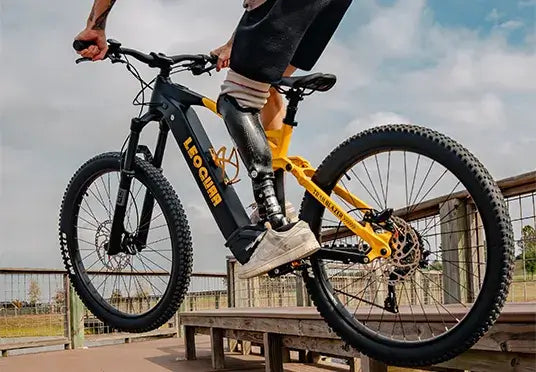
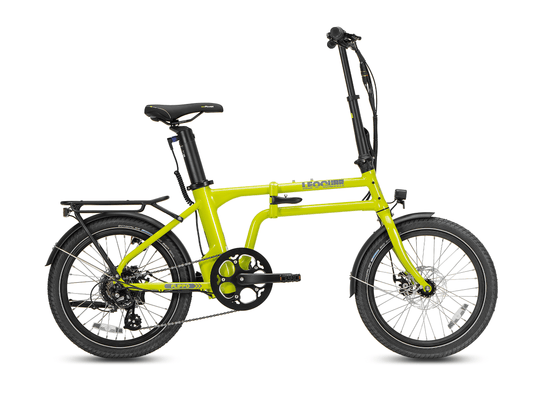
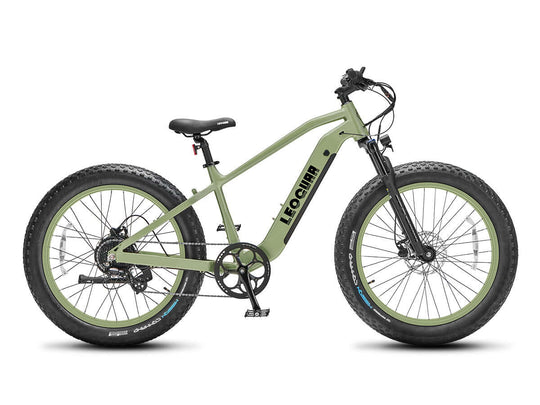
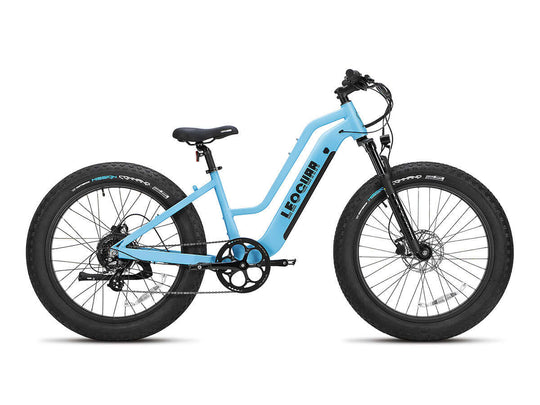
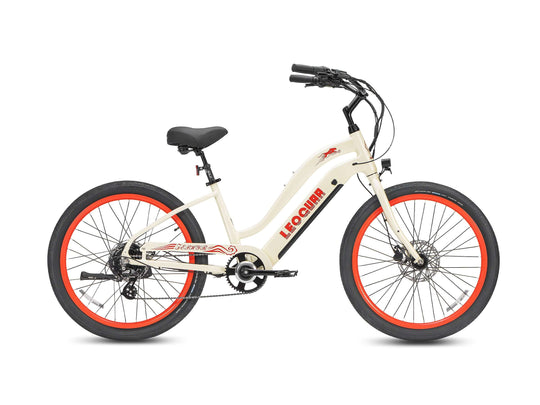
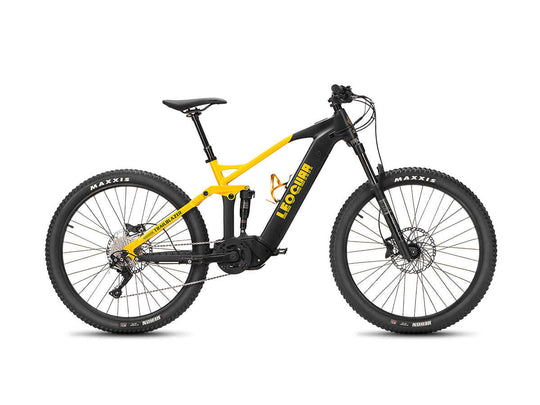
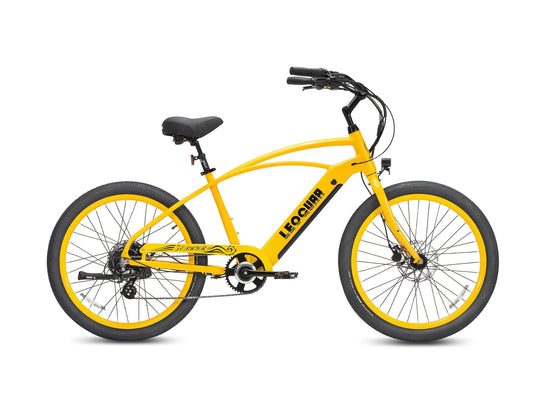
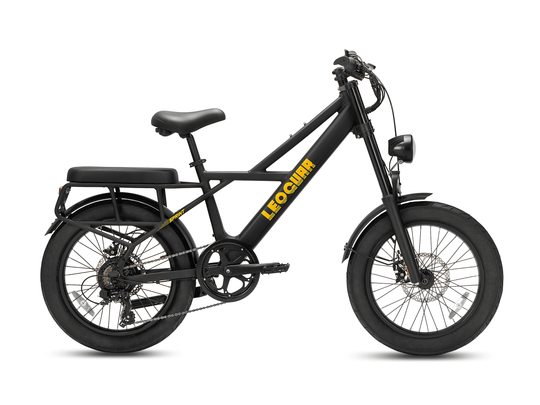
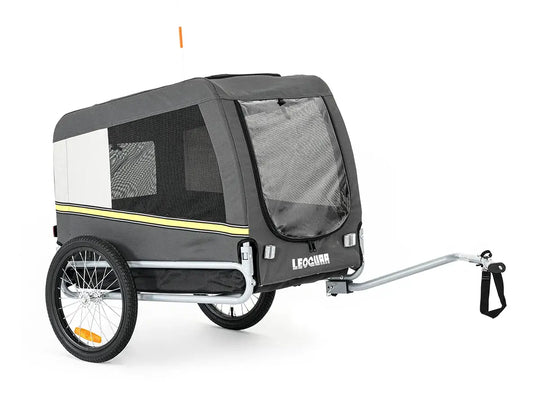
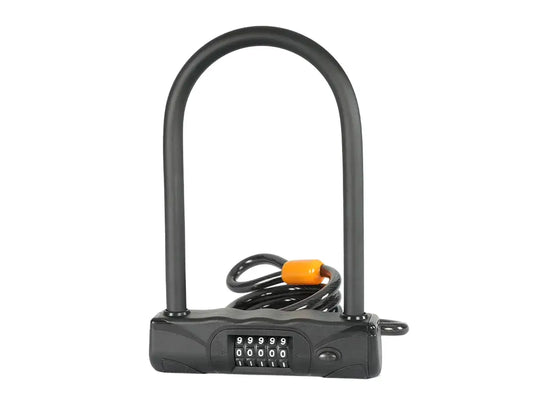
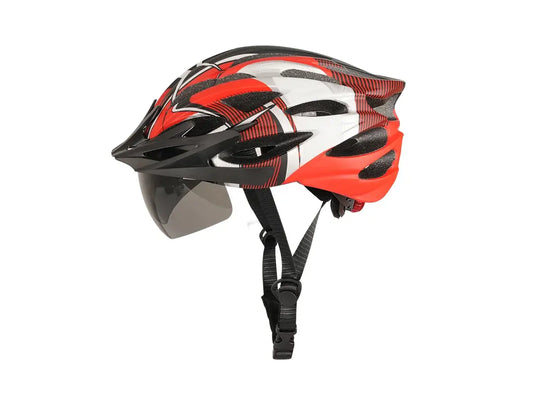
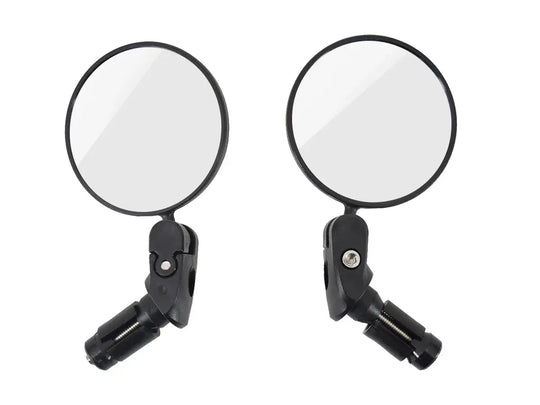
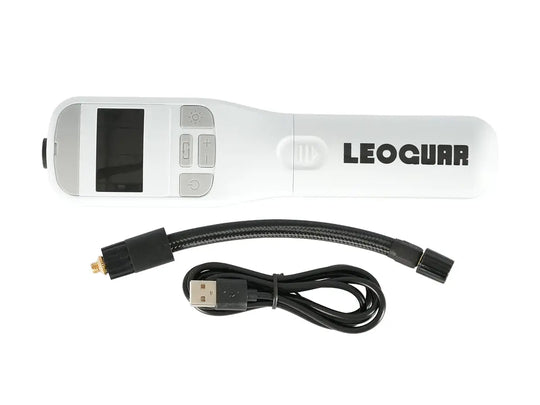
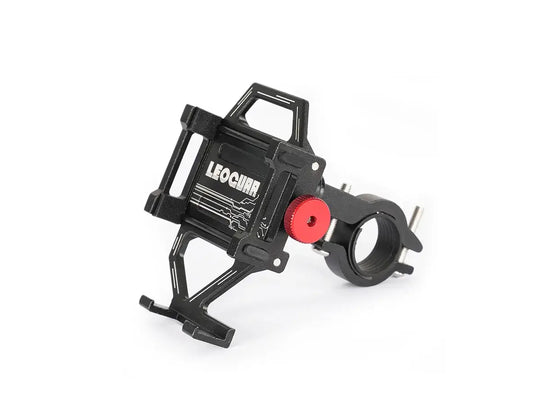
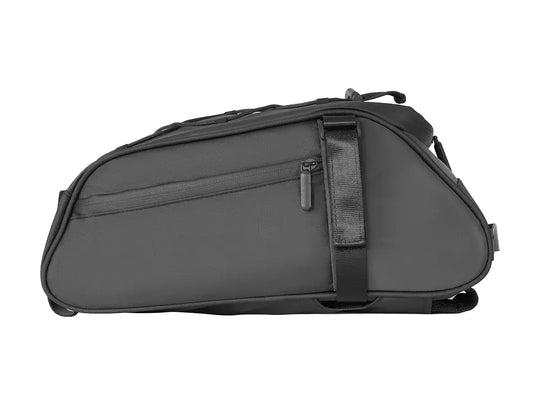
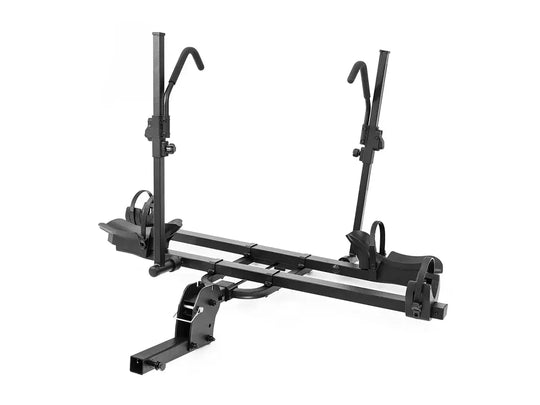
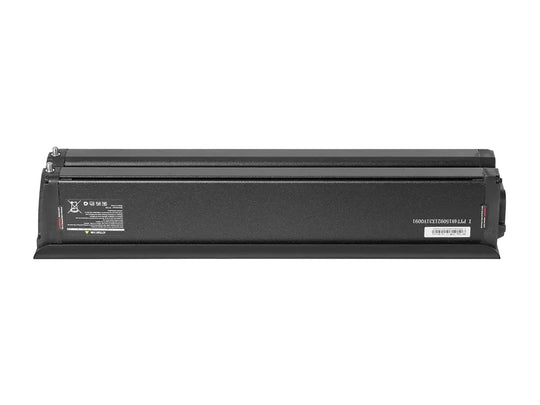
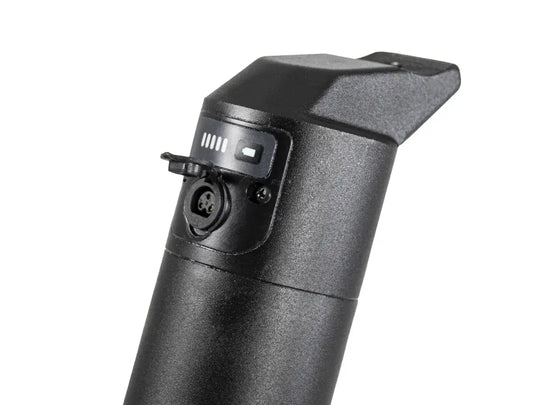
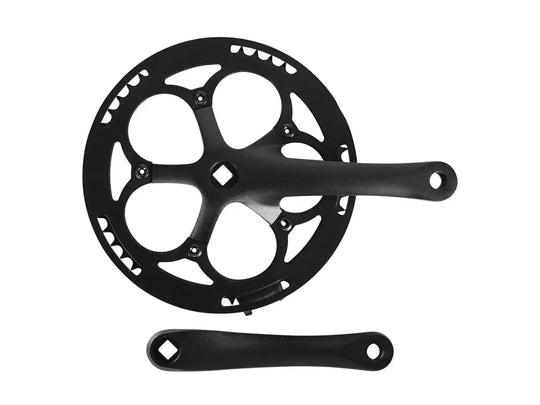
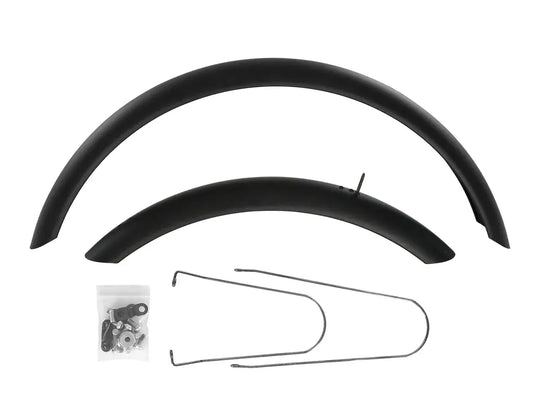
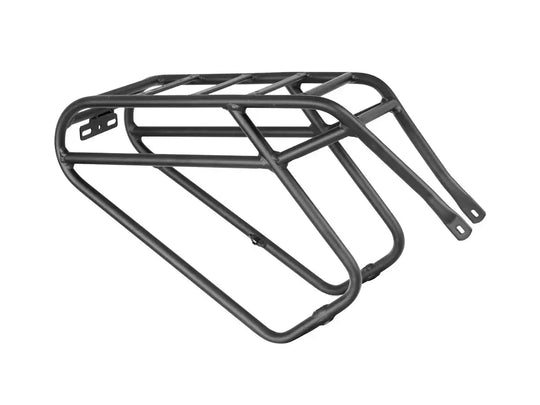
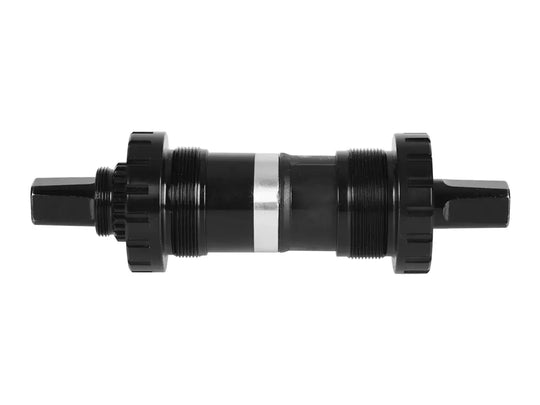
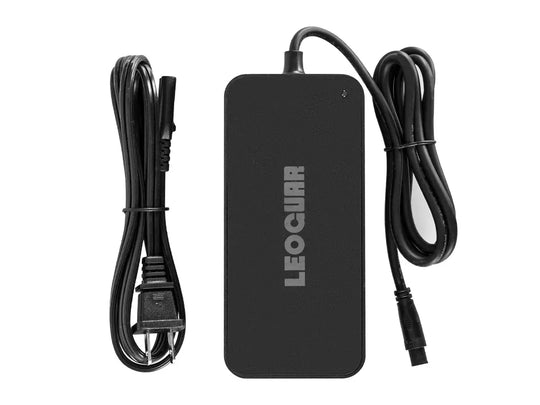
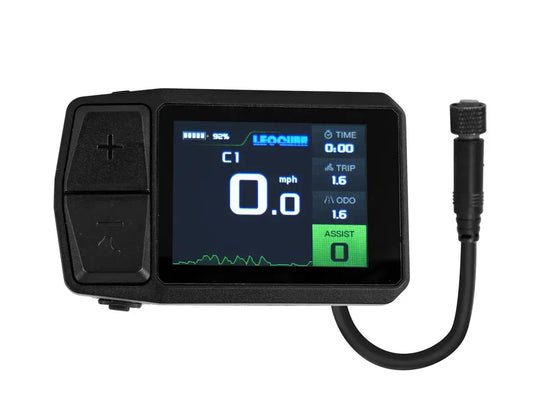

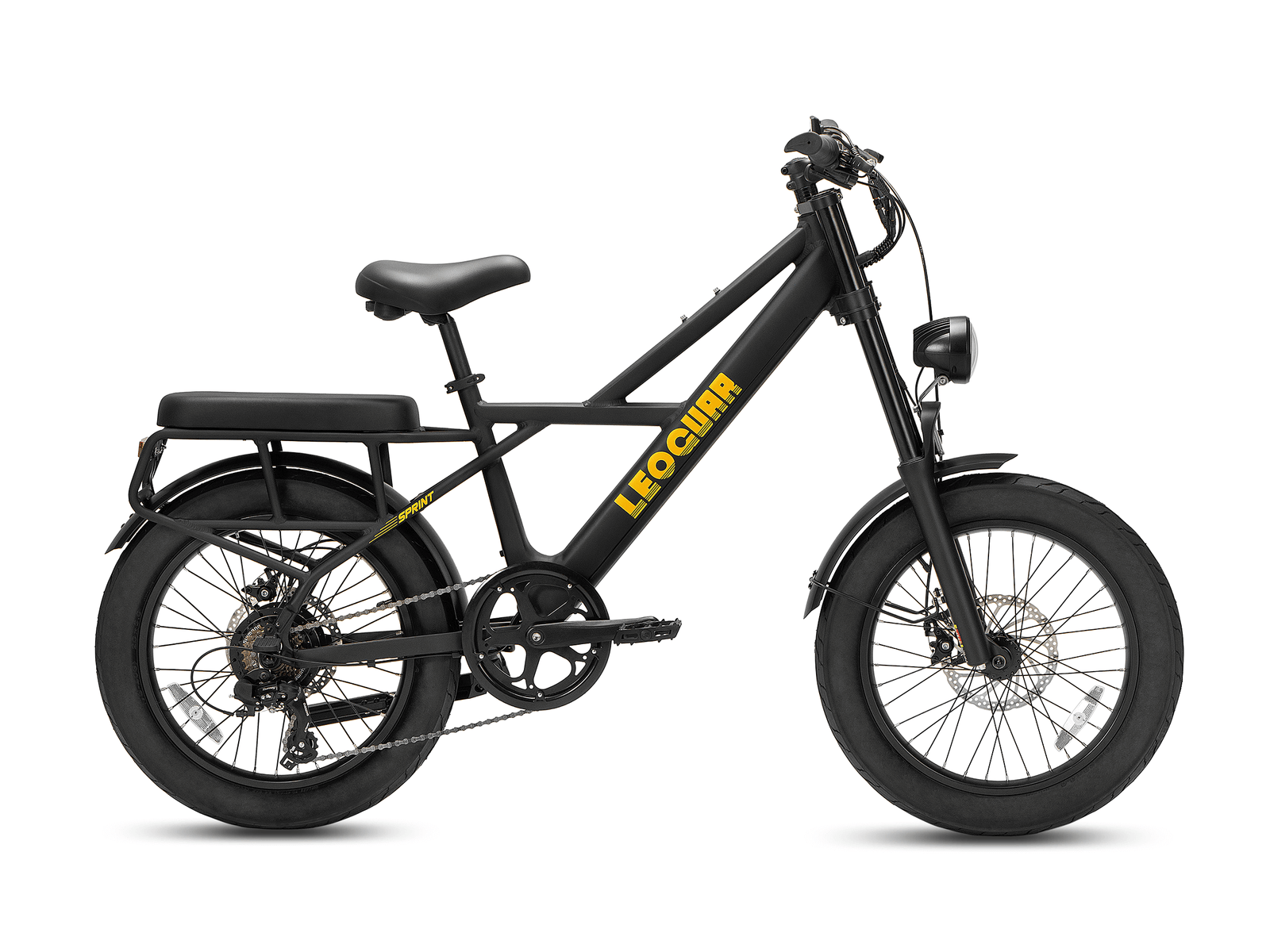
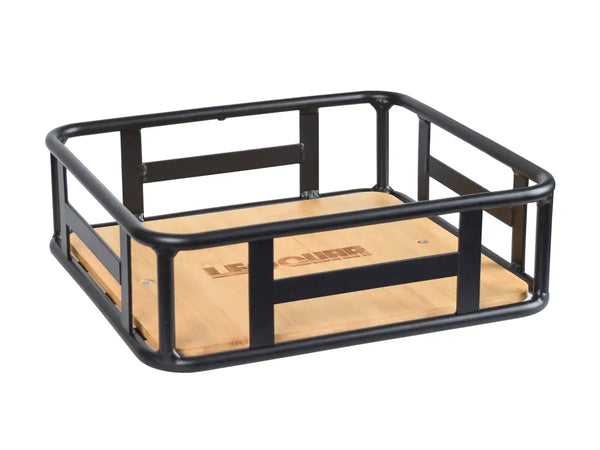
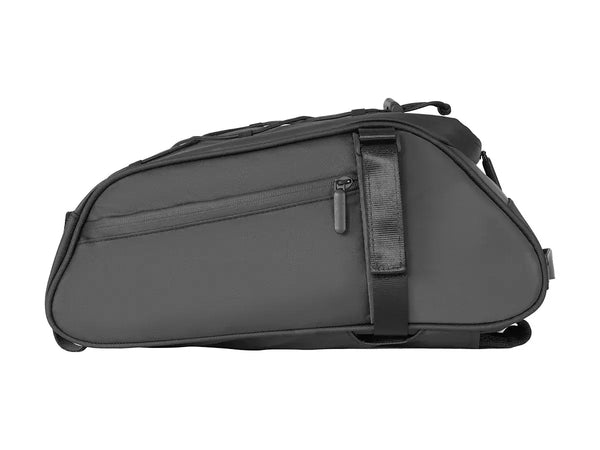







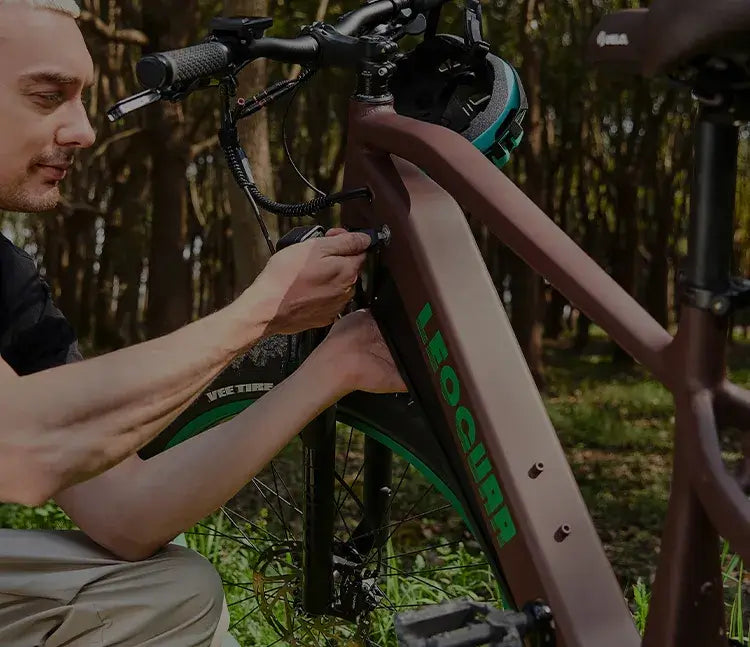
Leave a comment